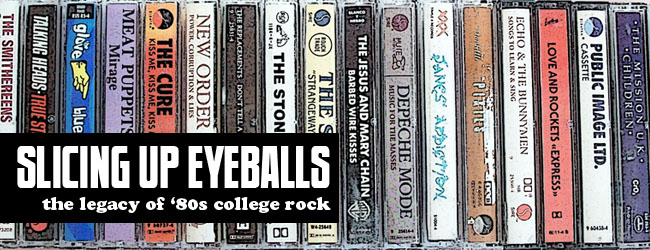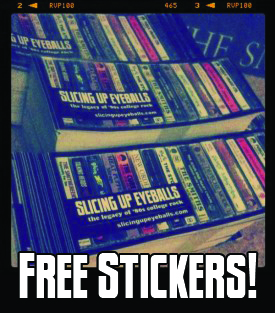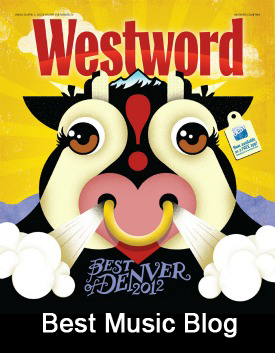
“Mad World: An Oral History of New Wave Artists and Songs that Defined the 1980s” arrives in stores this week, offering a page-turning tour through 35 classic songs via new interviews with the artists, a list that includes Depeche Mode, Echo & The Bunnymen, INXS, Tears For Fears, The Smiths, Joy Division, OMD, Adam and the Ants and more.
Last week, we brought you an excerpt from the chapter on New Order’s “Blue Monday,” and today we follow that up with a second extract from the book: a portion of Jim Kerr’s comments on the band’s breakthrough single, “Don’t You (Forget About Me)” from the film “The Breakfast Club.”
That song, of course, was not written by Simple Minds, and Kerr explains how he and his bandmates famously turned down the request to record it for the John Hughes film, and finally were persuaded to do so (“It was literally a few hours in a drafty studio in Wembley, and the rest is history”).
Despite his reluctance to embrace the song — the band refused to put it on their next album, Once Upon a Time — Kerr acknowledges its place in pop culture:
“It belongs to that generation and it’s a pleasure to play it, and every night we play it with full gusto. We never just go through the motions, because it’s a song from a movie that means a lot to a fair amount of people and you want to respect that.”
The 320-page paperback, by Lori Majewski and Jonathan Bernstein, will be published Tuesday by Abrams Image, and includes a forward by Duran Duran’s Nick Rhodes and an afterword by Moby.
Excerpt: Simple Minds, “Don’t You (Forget About Me)” — taken from the forthcoming book “Mad World: An Oral History of New Wave Artists and Songs that Defined the 1980s”
Jim Kerr: The success, especially in Europe, of New Gold Dream had taken us into these much bigger venues. We were playing arenas for the first time. They put us out in front of crowds at festivals of 60,000 to 70,000. It definitely wasn’t overnight but [headlining our own shows] went from playing to 3,000 to playing to 12,000 within a year. At times we were probably trying too hard, but there was the thing of trying to reach the back of the hall, trying to master an audience. For instance, when we played some of these festivals, there would be much bigger acts than us at the time: Elvis Costello, Van Morrison. Very good artists, but they weren’t cutting the mustard. It wasn’t happening. The music was going up in the air — they weren’t involving the audience. I don’t know if it even dawned on them. But we wanted everyone to get involved, and I think that showed. A huge thing happened with the band when we got a drummer like Mel Gaynor, who is as heavy as John Bonham or Keith Moon. The fact that we’d got this guy who could not only groove but rock — we were like kids with a new train set. We wanted to use it every song, so we lost a lot of subtlety, but we were excited with the noise that was coming out.
New Gold Dream and Sparkle in the Rain had got a lot of college radio action, and that was great, but no money was spent on them, which was frustrating because some of our contemporaries were starting to break through. Money we were making elsewhere we were putting into tours of America, and we were continually losing it. We were starting to feel gypped, to say the least.
The whole thing with “Don’t You” was a bit of a comedy of errors. We had an A&R guy at the time called Jordan Harris, who said, after New Gold Dream and Sparkle, it was good news, bad news. He said, “We should have got behind these records. Too late now. But there’s a buzz growing on a daily basis.” We were about a year away from a new record. He said it would be great to have something meanwhile to feed the machine and keep the momentum going. We didn’t have anything ready, and he said, “Well, actually, there is something happening that would be great for you.” [Simple Minds’ label] A&M were starting to do movies. He introduced “The Breakfast Club” to us, then he slipped in the notion that there was a song that would be right for us to do. We said, “Wait a minute, we don’t do anyone else’s songs.” He said, “Don’t worry, this’ll work because it really sounds like a Simple Minds song.” Well, that made it worse because we thought, We’re Simple Minds!
It turns out that we’d played L.A. a few months earlier and [composer-producer] Keith Forsey had come backstage and given Mick MacNeil, our keyboard player, a cassette of the song. Mick had played it, didn’t think much of it, and forgot to tell us. But Keith had been waiting to hear from us. Finally, Jordan, who was a smooth operator and a lovely man, managed to get us to consider the track. As far as the demo went, Keith sang on it, and it sounded like Richard Butler — like a Psychedelic Furs thing. I could see them doing it, but I couldn’t see Simple Minds ever, and it wasn’t the kind of lyric I would write. So we, as it’s well known, knocked it back a number of times. People have said it was offered to Bryan Ferry, but I asked Bryan and he said he never got approached with it, so I don’t know if that’s true.
What turned it around wasn’t the fact that we woke up and smelled the coffee. The thing that did it was Keith came over to London off his own back. He knew we weren’t doing it, he got in touch and said, “I’m a big fan of the band anyway; maybe we could work together in the future. I hear you’re in London, can I come and hang out for a couple of days?” Lo and behold, we liked Keith more than his song. You know when you like someone, it’s like, “He’s our new pal.” We thought he was great, and at the right moment, he said, “Why don’t we nip in and do this thing and get the record company off your back? If it doesn’t work, it doesn’t work. If it does work, who knows?” It was literally a few hours in a drafty studio in Wembley, and the rest is history.
As soon as that song starts, it’s Simple Minds. We put our heart and soul into it. A lot of people could have done that song. Richard Butler could have done it. But he couldn’t have done it like that. It wouldn’t have jumped out the radio at you like that did, and it wouldn’t have had you jumping out of your seat at the end. Sonically, the heartbeat behind it is total Simple Minds. It will never be ours, but, in a good way, the song belongs to everybody now. It belongs to that generation and it’s a pleasure to play it, and every night we play it with full gusto. We never just go through the motions, because it’s a song from a movie that means a lot to a fair amount of people and you want to respect that.
People ask if it gets on my nerves that it’s always that song. If we’d been a one-hit wonder, then maybe it would — and they might say, in the States, that is the case. Well, you know, we’ve sold gazillions of records and we’ve played to gazillions of people. You don’t have to love all the albums. It’s an honor to us if you even like one of them. People fell in love to that song; they got married to it. The song never strangled us. Jimmy Iovine, who produced Once Upon a Time, said, “Look, this thing’s a monster! You’d better have something to follow it up.” Well, “Alive and Kicking” got to number two in the Billboard charts. It was held off by Michael Jackson. We did all right.
Preorder: “Mad World: An Oral History of New Wave Artists and Songs That Defined the 1980s”












Kerr is right, “Don’t You” is a song recorded by Simple Minds and owned by it’s fans. But the majority of those fans know what came before and what came after and that is their true legacy. Look at the music they have given us the last 5 years, they are on a role.
I always sort of thought since Keith Forsey wrote it, “Don’t You” was supposed to be a Billy Idol song but they had a falling out or something. Guess not? When I hear it I imagine BI singing it :-)
Don’t imagine, Billy Idol did sing it on his 2001 Greatest Hits compilation.
I always thought Bryan Ferry was intended as the vocalist but turned it down?
I like Simple Minds so this isn’t a slam on them. It’s just, wow, that picture of Jim. Is it just me, or is anyone else getting that Halloween Michael Myers vibe?
Hey Shawn, thanks for the heads up. Just ordered a copy! Fantastic :-)
Is there a complete list anywhere of the songs in this book?